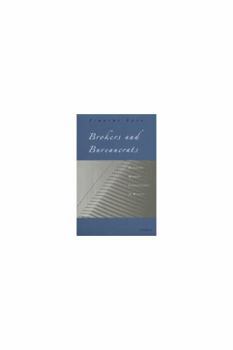Brokers and Bureaucrats: Building Market Institutions in Russia
Select Format
Select Condition 
Book Overview
A classic problem of social order prompts the central questions of this book: Why are some groups better able to govern themselves than others? Why do state actors sometimes delegate governing power to other bodies? How do different organizations including the state, the business community, and protection rackets come to govern different markets? Scholars have used both sociological and economic approaches to study these questions; here Timothy Frye argues for a different approach. He seeks to extend the theoretical and empirical scope of theories of self-governance beyond groups that exist in isolation from the state and suggests that social order is primarily a political problem. Drawing on extensive interviews, surveys, and other sources, Frye addresses these question by studying five markets in contemporary Russia, including the currency futures, universal and specialized commodities, and equities markets. Using a model that depicts the effect of state policy on the prospects for self-governance, he tests theories of institutional performance and offers a political explanation for the creation of social capital, the formation of markets, and the source of legal institutions in the postcommunist world. In doing so, Frye makes a major contribution to the study of states and markets. The book will be important reading for academic political scientists, economists (especially those who study the New Institutional Economics), legal scholars, sociologists, business-people, journalists, and students interested in transitions. Timothy Frye is Assistant Professor of Political Science, The Ohio State University.
Format:Paperback
Language:English
ISBN:0472067133
ISBN13:9780472067138
Release Date:April 2000
Publisher:University of Michigan Press
Length:288 Pages
Weight:1.10 lbs.
Dimensions:0.9" x 6.0" x 9.1"
Customer Reviews
0 rating





